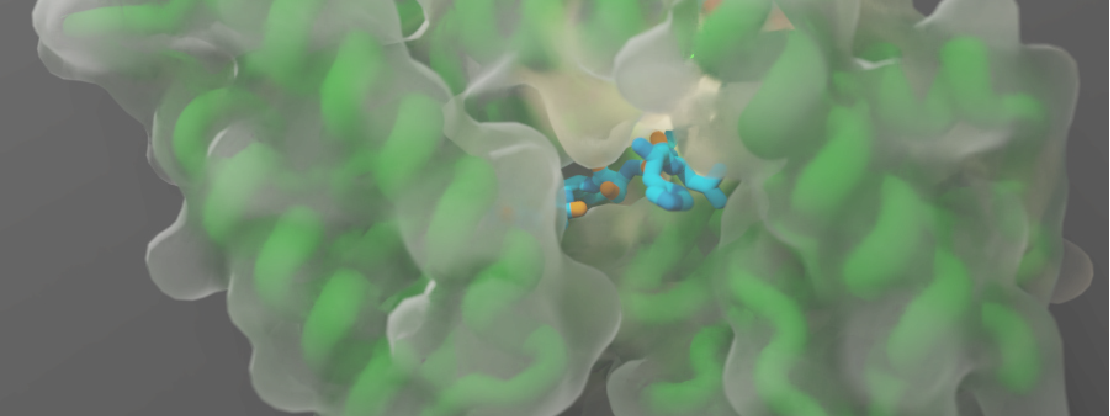Teaming up to accelerate scientific discovery
December 5, 2018

How close collaboration between academic labs, the biotech sector and a highly competitive federal grant program bolsters biomedical research innovation and cutting-edge technology development
In science, teamwork can rapidly speed progress.

Take, for example, the collaboration between Van Andel Research Institute’s Dr. Scott Rothbart and scientists at the biotechnology company EpiCypher, Inc. Their partnership, now six years strong, illustrates the tremendous impact that working together can have when tackling complicated scientific problems.
Case in point — deciphering epigenetics, a complex regulatory network that controls how the information encoded in our genes is accessed and interpreted.
“Understanding how epigenetic mechanisms contribute to gene regulation is crucial for finding ways to better prevent, diagnose and treat diseases such as cancer,” said Rothbart, an associate professor at the Institute. “Our collaboration with the team at EpiCypher has afforded us access to new technology that is helping us answer longstanding questions related to these intricate processes.”
This scientific relationship, which began early in Rothbart’s career and during EpiCypher’s infancy, has grown into a full-fledged collaboration, one that is now supported by several Small Business Research Innovation (SBIR) grants from the National Institutes of Health. Known as America’s Seed Fund, the highly competitive SBIR program awards federally funded research grants to small businesses to support American-led discovery. For Rothbart and EpiCypher, this program has fueled their academic-industry partnership and stimulated technological innovation that is helping bridge a major gap between basic science discovery and clinical advancements.
In the past four months alone, the collaboration between Rothbart’s lab and EpiCypher has resulted in the publication of three articles in premier scientific journals, each detailing a new advance that will help scientists around the world investigate epigenetic processes and potentially develop new therapies for a host of diseases.
Collectively, these publications describe powerful new methods for studying a family of proteins that are promising targets for cancer treatment, as well as exploring chromatin, the bundled mass of DNA and proteins that elegantly packages a complete copy of the genome in every human cell.
“This collaboration has enabled us to develop new, innovative ways to study incredibly complex mechanisms of epigenetic control,” Rothbart said. “Importantly, the technologies we’ve developed not only help us — they help the broader scientific community.”
The benefits go both ways. While Rothbart’s lab gets access to new technology early on, EpiCypher gets real-world validation of their methods.
“Collaboration with academic groups like the Rothbart lab are vital for generating the robust data required for the evaluation of new technologies in practical applications,” said Dr. Martis Cowles, chief business officer for EpiCypher. “The power of these studies is not merely to show how a technology works but to push the boundaries of what we think is even possible in order to solve challenging, unanswered questions.”
Importantly, these types of partnerships make the most out of often scarce resources by tapping into the strengths of multiple organizations and reducing duplication of effort. They also increase the amount and diversity of brainpower directed at solving a given problem.
“Technology development is challenging, costly and can distract or delay researchers from pursuing answers to important questions,” Cowles said. “Sharing advanced technologies from business partners allows academic researchers to keep their focus on discovery.”
The collaboration shows no signs of slowing down. Rothbart’s lab, using the methods and tools developed as part of the collaboration, will continue probing the impact of epigenetic changes on health and disease, while EpiCypher will use the lab’s feedback and insight to further improve their technologies.
“We look forward to continuing our collaborations with EpiCypher,” Rothbart said. “Team science that draws on expertise of scientists trained in different disciplines is the way of the future for solving complex problems in biomedical research. Together, we can find new ways to help people live longer, healthier lives.”
Research reported in this publication was supported by Van Andel Research Institute and the National Institute of General Medical Sciences of the National Institutes of Health under award numbers R35GM124736 (Rothbart), R43GM110869 (EpiCypher), R43GM112234/R44GM112234 (EpiCypher) and R43GM116584/R44GM116584 (EpiCypher), the National Cancer Institute of the National Institutes of Health under award numbers R43CA212733/R44CA212733 (EpiCypher), the National Institute of Allergy and Infectious Diseases of the National Institutes of Health under grant number R43AI140942 (EpiCypher) and the National Human Genome Research Institute of National Institutes of Health under award number R44HG008907 (EpiCypher). The content is solely the responsibility of the authors and does not necessarily represent the official view of the National Institutes of Health.
ABOUT VAN ANDEL RESEARCH INSTITUTE
Van Andel Institute (VAI) is an independent nonprofit biomedical research and science education organization committed to improving the health and enhancing the lives of current and future generations. Established by Jay and Betty Van Andel in 1996 in Grand Rapids, Michigan, VAI has grown into a premier research and educational institution that supports the work of more than 400 scientists, educators and staff. Van Andel Research Institute (VARI), VAI’s research division, is dedicated to determining the epigenetic, genetic, molecular and cellular origins of cancer, Parkinson’s and other diseases and translating those findings into effective therapies. The Institute’s scientists work in onsite laboratories and participate in collaborative partnerships that span the globe.
ABOUT EPICYPHER
A pioneer in the field of epigenetics and chromatin biology, EpiCypher is a biotechnology company developing transformative technologies and delivering superior products to researchers worldwide. EpiCypher manufactures and sells recombinant “designer” modified nucleosomes (dNucs), including the SNAP-ChIP® product family for quantitative ChIP applications, as well as recombinant histone binding proteins, peptides and antibodies, and offers a broad range of custom substrate manufacturing and assay development services.
